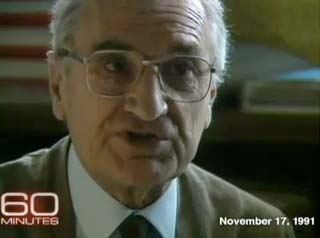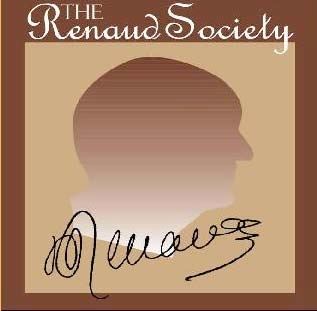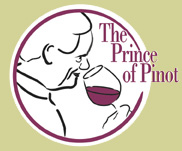Serge Renaud and the French Paradox: The Origin of Interest in Wine and Health
“A moderate and regular wine consumption of 1 to 3 drinks per day,
which is common in France, protects us.”
Serge Renaud
Serge Renaud, M.D., PhD, the “Father of the French Paradox,” passed away October 28, 2012, just weeks
short of his 85th birthday. Born in the Bordeaux region of France, he was the son of a winemaker who went on
to perform important research on wine and other alcoholic beverages and their relationship to cardiovascular
disease and other diseases of aging. His early research was carried out in Montreal, Canada, during the
1950s, and later in Boston. Renaud returned to Lyon, France in 1973 as the Director of Research at INSERM,
the French National Institute of Health and Medical Research, where much of his research was carried out.
Renaud found a relationship between the low rate of cardiovascular disease and moderate wine intake in the
French population. Although the French consumed a diet high in saturated fat, smoked more, and exercised
less than Americans, the French had 40% fewer heart attacks and lived on average about two and a half years
longer. To their advantage, the French consumed moderate amounts of red wine regularly with meals, they ate
more fresh fruit and vegetables, they took longer to eat and snacked less, they ate less red meat and more
cheese, and they used more olive oil and less butter in their cuisine. Of all these factors, the link between
moderate and regular consumption of wine with meals was strongest and supported by the most scientific
evidence. This become known as “The French Paradox,” and unleashed a worldwide interest in the possible
health benefits of wine. The idea that drinking might be good for you came as a surprise to most people.
In 1991 Morley Safer ran a televised feature on 60 Minutes about The French Paradox. Safer had consulted
with Curtis Ellison, M.D., Professor of Preventive Medicine and Epidemiology at Boston University School of
Medicine, and Ellison told him the secret to the longevity of the French Paradox was wine, food and lifestyle.
On the now landmark telecast, Safer asked Renaud what the observed decreased mortality from
cardiovascular disease in the French could be attributed to, and Renaud answered, “I think it is the alcohol.”
Safer ended the show holding up a glass of red wine. The next day the demand for red wine took off in the
United States and the American public’s interest in wine and health had begun. The solution to The French
Paradox was in a bottle.

Renaud published his now famous paper in the medical journal, The Lancet, Volume 339, Issue 8808, on June
20, 1992, titled, “Wine, alcohol, platelets and the French paradox for coronary heart disease.” Renaud’s study
involved 34,000 middle-age men living in eastern France. In the paper, he emphasized, “At the moderate
intake of alcohol associated with the prevention of coronary heart disease, the mechanism of protection seems
to be at least partly, a hemostatic effect, possibly a decrease in platelet reactivity.” It soon became clear to Renaud and other researchers that The French Paradox might be explained by the polyphenols in the skins
and seeds of grapes present in red wine which produce the blood thinning effect among others.
Renaud was the patriarch of the Renaud Society, an international group of medical professionals with a
passion for wine, and an interest in health and scientific research on alcohol and wine (I am a charter member).
The Renaud Society and the affiliated Desert Heart Foundation affiliated with the University of New Mexico
School of Medicine is one of the few voices in this country promoting the truth about the responsible
consumption of alcohol, and particularly wine, to the public (www.therenaudsociety.org).

The French Paradox is still applicable as the latest statistics show that the life expectancy between 2005 and
2010 for the French was 80.7 years, while the United States life expectancy for the same period was 78.2
years. French consumption of wine is decreasing with the French Ministry of Agriculture division
FranceAgriMer reporting in 2010 that the average French adult consumed 57 liters (15 gallons) of wine.
Although significantly more than United States consumers, it is much less than the 160 liters the French
consumed in 1965. Only 17% of French currently have wine regularly. The decrease is said to be due to
increasing health awareness, the economy, and the high unemployment rate in France. Because wine
consumption has declined in France and yet the life expectancy has remained relatively constant, as pointed
out by Andrew Jefford (Decanter.com, November 12, 2012), the The French Paradox may not be due solely to
wine, but to better diet, less snacking, fresh foods, interest in exercise, plenty of vacation time, and other
factors. A similar paradox has been observe for other Mediterranean countries including Spain and Italy which
show the same reduced incidence of coronary artery disease. The only difference is the French consume an
inordinate amount of saturated fats.




